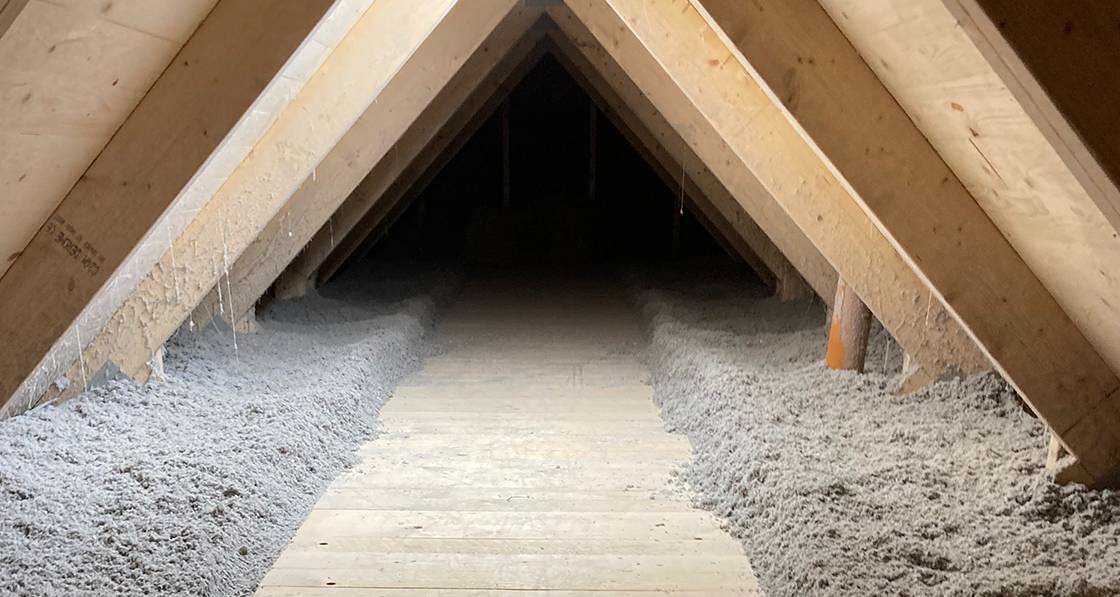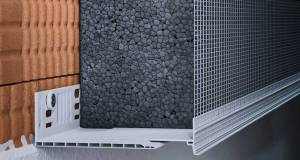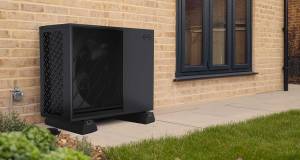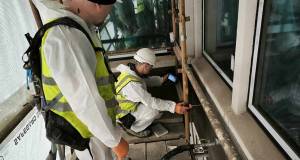
- Marketplace
- Posted
Cellulose insulation can boost airtightness — Ecocel
We all know the value of good insulation in improving the energy performance of a building, so why then are attics often an afterthought?
John Egan of Cork-based cellulose insulation manufacturer Ecocel says that despite increased awareness of the need for good U-values, the full potential of attic insulation to insulate a property is often not realised.
“Insulating the attic is the simplest, most efficient thing you can do in the house, but it just gets ignored,” he said.
The figures are impressive: 300 mm of Ecocel’s cellulose insulation, weighing-in at between 30 and 35 kilograms per square metre, provides a U-value of 0.11 W/m²K. “If every attic was insulted to that level, we’d be saving a lot of heat,” Egan said. There is more to it than that, though, Egan says. In fact, cellulose insulation improves airtightness, something he puts down to its inherent nature.
“First you get a U-value of 0.11 but you’re getting [additional] airtightness. Literally just putting cellulose in the attic improves the airtightness by 20 per cent. We’ve undertaken two preliminary tests and have just received word from Enterprise Ireland they will fund three independent tests through third-level institutes to verify this,” he said.
“It’s a lot to do with the density of the material, and also that it’s blown-in so it goes everywhere. Cellulose naturally seals around pipes and electrics,” he said.
As a recycled material, cellulose also has the advantage of low embodied energy, something that has been recognised this year: Ecocel’s Scottish distributor, Ecocel Scotland, has been awarded Most Sustainable Home Insulation Provider in the 2020 Scottish Enterprise Awards.
“Low embodied energy is very important to us,” Egan added. “We produce just 0.3 kilos of carbon per kilo of insulation material.”
Related items
-
Air tightness training course to launch in Carlow this March
-
 New Ejot profile cuts thermal bridging losses by 25mm insulation equivalent
New Ejot profile cuts thermal bridging losses by 25mm insulation equivalent -
 Build Homes Better updates Isoquick certification to tackle brick support challenge
Build Homes Better updates Isoquick certification to tackle brick support challenge -
 Ecological Building Systems expands UK and Irish straw panel construction with EcoCocon deal
Ecological Building Systems expands UK and Irish straw panel construction with EcoCocon deal -
 Grant’s Aerona R290: A next-gen heat pump designed for the Irish climate
Grant’s Aerona R290: A next-gen heat pump designed for the Irish climate -
 Historic Dublin building retrofitted with cutting edge insulation
Historic Dublin building retrofitted with cutting edge insulation

